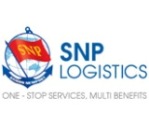 |
If you are asking why you need a cloud-based WMS you might be asking the wrong question… Many smaller and growing businesses see the management of their warehouses as a necessarily evil. Chances are that the business grew out of a great idea or some passion or expertise by the founder. It is unlikely that warehouse management is one of them. However, almost every new business soon comes to realise that managing stock, fulfilling customer orders or meeting manufacturing schedules is pretty important to keeping going and growing. That usually means choosing a WMS. One common initial consideration is that warehouse management needs to be kept in-house, perhaps because the business wants to “own” the complete process or maybe they want to protect their data. Both are valid, as many other reasons might be, but they will not necessarily override other prevailing business requirements. Maybe in the past there was little alternative and this remains some of the thinking behind businesses’ decision to select a conventional hosted system. Nevertheless, the burdens placed on in-house infrastructure, expertise, resources and investment can make this type of solution prohibitive to all but the most well-funded of start-ups.
Many businesses also make their decisions based on the misapprehension that their storage, handling and picking requirements are so unique that the only solution that will meet their needs is fully bespoke. That can be an expensive decision. In practice, the vast majority of businesses have broadly similar requirements from their warehouse processes even if they give individual tasks different names (based on jargon from their own industry) or make or sell completely different types of product. From a warehouse management perspective, a pair of shoes in a box is no different to a book or a bottle of gin.
The established WMS vendors are the experts in their field and there won’t be much they haven’t seen over the years. Chances are that their systems (traditional or cloud-based) already support all of the key (for which read common) warehouse processes and probably many more besides. That means they will be able to offer solutions for most businesses quickly and with little or no additional configuration or bespoke work.
This is where cloud-based solutions such as ProSKU come into focus. The best of these support all core warehouse processes as standard which means they can be introduced quickly into almost any warehouse operation. These applications are hosted in the cloud and accessed by any suitable device, whether a desktop browser, tablet or smartphone. Customers simply log on from any location to use the application but their own data is secure and segregated. This in itself offers some advantages over traditional hosted systems that tend to be bolted down so tightly that they can only be accessed while on the premises. Moreover, because the core application is hosted in the cloud there is no need for additional on-site infrastructure such as servers, networks and other hardware with all the cost and complexity involved. It follows that the simpler cloud-based solution with fewer configuration and installation overheads should be more economical.
Another big advantage is the speed and simplicity of implementation. For most warehouses, all that is required to get started is to enter basic information about products and their physical locations. If this is already available electronically it can usually be cut-and-pasted or uploaded in a common file format. In some cases, the basic processes can be up and running in a day or two and will probably represent a major step forward for the business. Additional functionality, typically already available in the application, can be introduced as and when required. The best cloud-based WMS can also integrate with other applications such as e-commerce, CRM or accounting that the business already uses.
The ease of implementation and lack of bespoke configuration inherent to cloud-based WMS allows suppliers to adopt a radically different pricing model. Services are provided on a cost-per-user, number of transactions, amount of data stored or some similar – and scalable – basis with no need for long term contracts because the supplier does not have to claw back their own investment in the customer. This make such solutions much more affordable for all businesses but especially those for whom the costs of a bespoke system are prohibitive.
One of the most significant advantages of a cloud-based system is the way it is upgraded. There is in effect just one entity of the underlying application running in the cloud but with customer data segregated and secured. Crucially, this means that any modifications, upgrades and enhancements to the application are available to all users as soon as the developer releases them into the live environment. In other words, everyone has access to the very latest and most advanced version.
The cost of these upgrades is effectively shared among all of the user base. There is little scope for bespoke configuration (beyond anything supported within the core application) because that would be prohibitively expensive. With traditional systems the user generally has to anticipate requirements before the system is deployed. That means lots of potentially expensive planning and configuration work up-front to ensure a “stable” solution on day one. By then, it is possible that the business requirement has moved on or the developer has already implemented new and upgraded features that are not part of the implementation. Either way, it becomes a game of catch-up that rarely results in the business having access to the best-in-class functionality.
So, the question should be not “do I need a WMS” but “why are we waiting to start saving costs and improving productivity with a cloud-based WMS rather than waiting for a bespoke system with higher costs and few extra benefits”? www.logisticshandling.com
|













